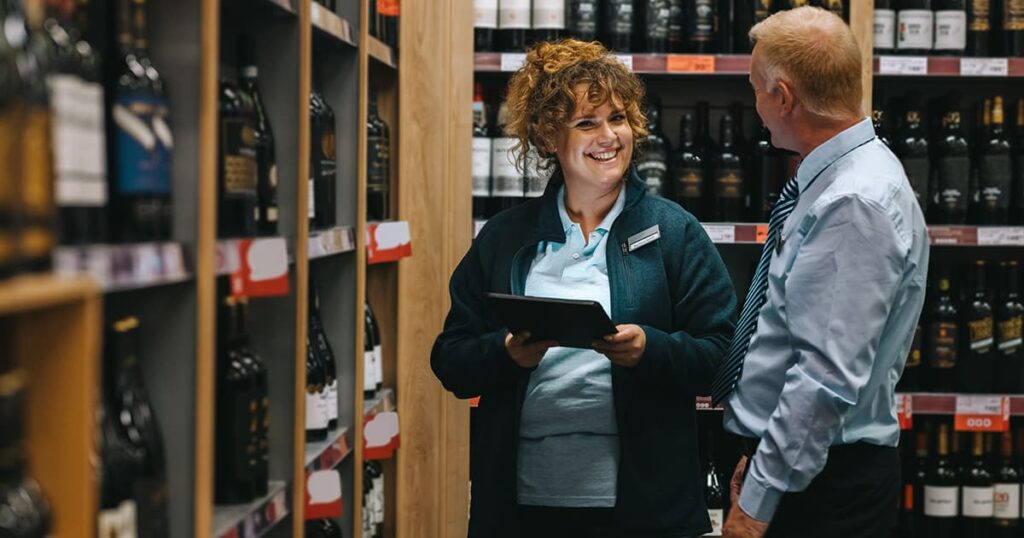DIY: Get an Insurance Quote for Your Spirits Shop

Running a spirits shop is more than just offering fine selections of whiskey, vodka, and craft spirits. It’s a business that comes with unique risks—from property damage and theft to liability issues tied to alcohol sales. Whether you’re launching your first retail liquor store or managing a well-established bottle shop, having the right insurance coverage is not just smart—it’s essential.
In this guide, we walk you through a do-it-yourself approach to getting an insurance quote for your spirits shop, helping you understand what to look for and how to protect your investment without relying on a broker from the start.
Why Your Spirits Shop Needs Insurance
Before we dive into the process, let’s address the “why.” Spirits shops, like other small retail businesses, face a unique set of challenges:
Property damage from fire, storms, or vandalism
Theft or burglary—alcoholic products are high-value targets
Customer injuries on your premises
Liquor liability if a customer causes harm after purchasing from your store
Product spoilage or damage from power failures
Without insurance, a single incident could lead to significant financial loss. Having a tailored policy for your shop helps ensure business continuity and peace of mind.
Step 1: Understand What Coverage You Need
Getting an insurance quote begins with knowing what types of coverage are relevant for your spirits business. Here are the most common policies you should consider:
General Liability Insurance
This protects you against third-party claims for bodily injury or property damage. If a customer slips and falls in your store, this coverage helps pay for legal fees or medical costs.
Liquor Liability Insurance
This is crucial for any business selling alcohol. It offers protection if a customer becomes intoxicated and causes injury or property damage.
Property Insurance
Covers damage to your building, inventory, equipment, and furnishings due to fire, theft, or natural disasters.
Business Interruption Insurance
If an unexpected event forces you to temporarily close your shop, this can cover lost income and operational expenses.
Workers’ Compensation
If you have employees, most states require you to have workers’ comp insurance. It covers medical costs and wage replacement for injured staff.
Understanding these basic coverage types ensures you’re requesting the right policies when seeking a quote.
Step 2: Gather Business Details
Before you go shopping for quotes, collect the key details insurers will ask for. These may include:
Business name and physical address
Years in operation
Type and value of inventory
Square footage of your shop
Number of employees
Annual revenue
Safety and security measures (e.g., alarm systems, surveillance, fire sprinklers)
Having this information ready streamlines the process and helps get more accurate estimates.
Step 3: Use Online Quote Tools
Now that you’re prepared, you can begin your DIY process. Many commercial insurance providers offer free quote tools on their websites. Reputable platforms include:
Hiscox
The Hartford
Next Insurance
Simply Business
CoverWallet
When using these tools, search specifically for liquor store insurance or retail business coverage. Choose the type of business that most closely fits your operation and enter your details as prompted. Be honest and thorough—this ensures you receive quotes that reflect real-world risk and pricing.
Step 4: Compare Policies (Not Just Prices)
Once you’ve received a few insurance quotes, compare them carefully. Don’t just focus on the price. Look closely at:
Deductibles
Coverage limits
Inclusions and exclusions
Payment terms
Customer reviews and claims handling reputation
A lower monthly premium might seem appealing, but it could come with reduced coverage or high out-of-pocket costs during a claim.
Step 5: Contact a Licensed Agent (Optional, but Smart)
Even though this is a DIY guide, speaking with an agent—once you’ve done your homework—can add value. Many insurance professionals can help you fine-tune your policy based on your unique risk profile. They’ll also explain complicated terms and might even help you uncover potential discounts, such as for bundling policies or installing extra security measures.
Step 6: Finalize and Purchase Your Policy
Once you’ve chosen the best policy for your needs, the final step is purchase. Review the fine print, confirm your start date, and ask about automatic renewals or policy audits. Be sure to keep digital and hard copies of your policy documents somewhere secure.
Tips for Lowering Your Insurance Premiums
As a small business owner, managing costs is always a priority. Here are a few ways to reduce your premiums without compromising on coverage:
Increase your deductible (only if you can afford it)
Bundle policies (property + liability, for example)
Improve in-store security
Keep accurate records of inventory and sales
Train your staff on safety protocols
Final Thoughts
DIY: Get an insurance quote for your spirits shop isn’t just a cost-saving move—it’s a way to gain confidence and control over your business protection. With a clear understanding of your coverage needs, the right tools, and a little due diligence, you can find a policy that secures your liquor shop against common risks while keeping your bottom line in check.
Remember: protecting your business today helps you stay open tomorrow.
